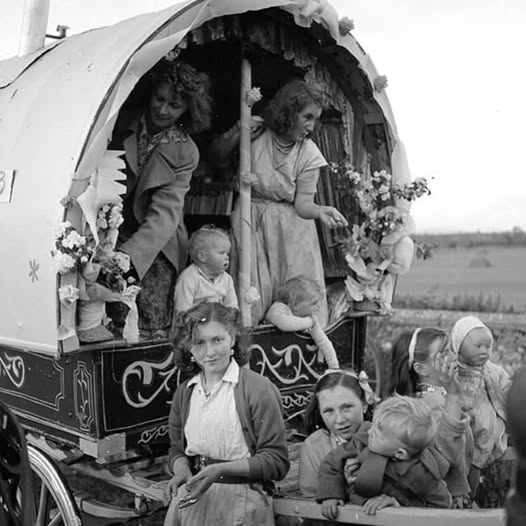Irish Travellers are an indigenous, nomadic ethnic group native to Ireland. They are not to be confused with Romani people, who are a separate ethnic group with origins in South Asia. Irish Travellers have a unique history, culture, and language, and they have faced significant challenges in maintaining their distinct identity.

Origins and Cultural Identity
The origins of Irish Travellers are a subject of debate. Some theories suggest that they are descended from itinerant craftspeople of medieval Ireland, while others believe they are descended from people who were displaced during historical conflicts. Regardless of their origins, they have developed a distinct culture and way of life that has been passed down through generations.
- Shelta Language: Irish Travellers have their own language, called Shelta or Cant. This is a mixed language, combining elements of Irish and English, with a unique vocabulary and grammar. It is often used as a secret language, spoken only among members of the Traveller community.
- Traditional Crafts: Irish Travellers have a rich tradition of craftsmanship, particularly in metalworking, tinsmithing, and horse trading. These skills have been essential to their nomadic lifestyle.
- Family Structure: Family is central to the lives of Irish Travellers. They have an extended family structure, with strong family ties and a high degree of loyalty to their community.
Genetic and Cultural Distinctions
Genetic studies have shown that Irish Travellers are genetically distinct from the settled Irish population. This confirms that they are a separate ethnic group with a long history of independent migration and development.
- Community Culture: Their nomadic lifestyle has fostered a strong sense of community, with shared values and traditions.
- Maintaining Traditions: Despite facing many challenges, Irish Travellers have been resilient in maintaining their cultural traditions in modern society. They continue to use the Shelta language, practice traditional crafts, and uphold their family structures.
Challenges and Resilience
Irish Travellers face significant challenges, including discrimination, prejudice, and lack of economic opportunities.
- Discrimination: Irish Travellers often experience discrimination in employment, housing, and education. Negative stereotypes and misunderstandings about their lifestyle have led to social isolation and disadvantage.
- Cultural Preservation Efforts: Traveller organizations and advocacy groups are working to raise awareness of their culture and protect their rights. These efforts include recording and preserving the Shelta language, supporting traditional artisans, and promoting mutual understanding between Travellers and the settled community.
- The Future of Irish Travellers: The future of Irish Travellers depends on their ability to maintain their cultural identity while adapting to the changes of modern society.
Key points to remember:
- It is vital to distinguish between Irish Travellers and Romani people. They are very different ethnic groups.
- It is important to use respectful and accurate language when discussing Irish Travellers.
- They are a recognized ethnic group, and they have faced, and still face discrimination.
Conclusion
Irish Travellers are an important part of Ireland’s cultural diversity. Despite the challenges they face, they have been resilient in maintaining their unique heritage. Understanding and respecting their culture is essential for building a more inclusive and equitable society.
